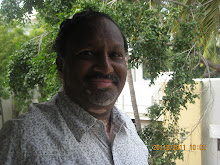The results of the India Census 2011 are just out this afternoon.
The Ministry of Home Affairs and the whole team at the Registrar General’s Office have to be commended for the swiftness in completion of the job. It looks like as if the enumerator had visited me only a few weeks back and presto here are the results. As a responsible citizen it is also my duty to congratulate the thousands who had walked from door to door to do the enumeration work and the back-office staff for the speed in collation of the data. It is always easy to say that we are in a world where technology comes in handy for such great works but we should not forget the men and women behind such monumental works.
The great Tamil poet Bharathiar’s poems remind us of a 30 crore population during the freedom struggle. My God where is 30 crores and where are we now- 121 crores. The first Census in 1951 after Independence shows a population of 36. 11 crores. From 36.11 crores in 1951, 43.92 in 1961, 54.82 crores in 1971, 68.33 crores in 1981, 84.64 crores in 1991, 102.87 crores in 2001- we have now come to 121,01,93,422 today.
Uttar Pradesh remains to be the most populous state. It had a population of 6.03 crores and now has a population of 19.96 crores. My state Tamilnadu had a population of 3.01 crores in 1951 and today we have 7.21 crores. You can compare the growth rate of these two states.
The highlights of the census show that child sex ratio in 2011 is 914 female against 1,000 male - the lowest since Independence. Literacy has gained over the years and we now have 74% of the population (age seven and above) as literates and the remaining 26% illiterates.
For a detailed information on the highlights please visit the following sites:
1) http://www.ndtv.com/article/india/census-2011-indian-population-increased-by-181-million-95387
2) http://www.thehindu.com/news/national/article1587153.ece
It feels nice when I think that I am one among 121 crores (1.21 billion) of people. It is now time to prove the world that we are not a big country but a great country. We have a lot of work to do to achieve that greatness. If each one of us puts his/her best for the country we would be soon the greatest. A big country of great people.
P.Uday Shankar.
